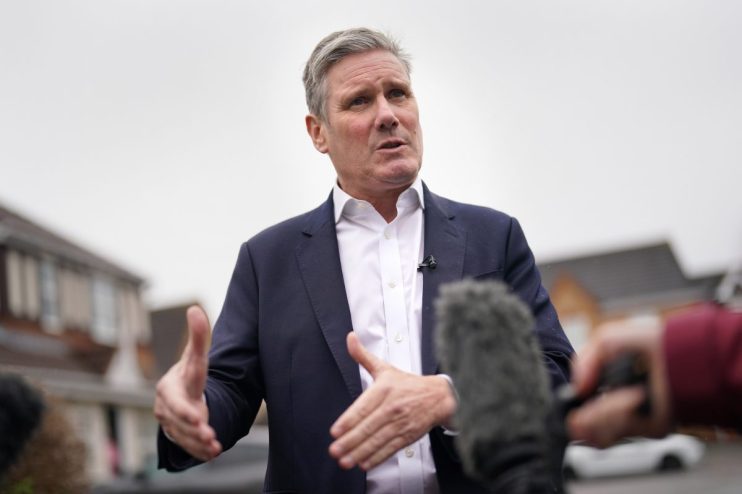April GDP figures show scale of the challenge if Starmer wins the election

The economy was stagnant in April, as economists had expected. Cue Labour’s response: “Rishi Sunak claims we have turned a corner, but the economy has stalled and there is no growth,” Rachel Reeves said.
Stagnation is clearly not good, but the weak performance in April partly reflects some factors outside of any government’s control (namely, the weather – remember King Canute).
The Office for National Statistics (ONS) noted that April received 155 per cent of normal rainfall. This had a knock-on impact for both the construction sector and retailers, both of which saw a very poor month.
So while it is disappointing that the UK was unable to extend the surprisingly strong start to the year, most economists are hopeful that, in the months ahead, the economy will continue growing.
That’s because the trends underlying the economic recovery still remain intact. Inflation will continue falling, interest rates will eventually be cut and real wages are still increasing. All of this should give consumers greater spending power.
On this basis, Philip Shaw, chief UK economist at Investec, said “April’s numbers represent a blip in the recovery story rather than the start of a new downturn”.
The real problem is that this anticipated recovery is fairly modest in the grand scheme of things.
The Confederation of British Industry (CBI) put out new forecasts last week which spoke to this issue. On their projections, growth would pick up to around 1.9 per cent next year on the back of strong consumer spending.
On the face of it that looks pretty good, but the problem is productivity growth is unlikely to move which will make it much harder for living standards to rise sustainably.
The other issue is that this recovery follows over a decade of sluggish growth. The Resolution Foundation point out that GDP per capita has grown just 4.3 per cent in the 16 years since the financial crisis compared to 46 per cent in the 16 years prior to that.
That is a shocking indictment on the UK’s economic performance since 2008.
James Smith, research director at the think tank said: “The latest data…should remind politicians that ending stagnation should be the central task of whoever wins the next election”.
Both parties have made boosting growth a key election priority. Indeed, Keir Starmer – who is almost certain to be the next Prime Minister – has said growth “must be Labour’s obsession”.
These figures show he’ll have his work cut out.